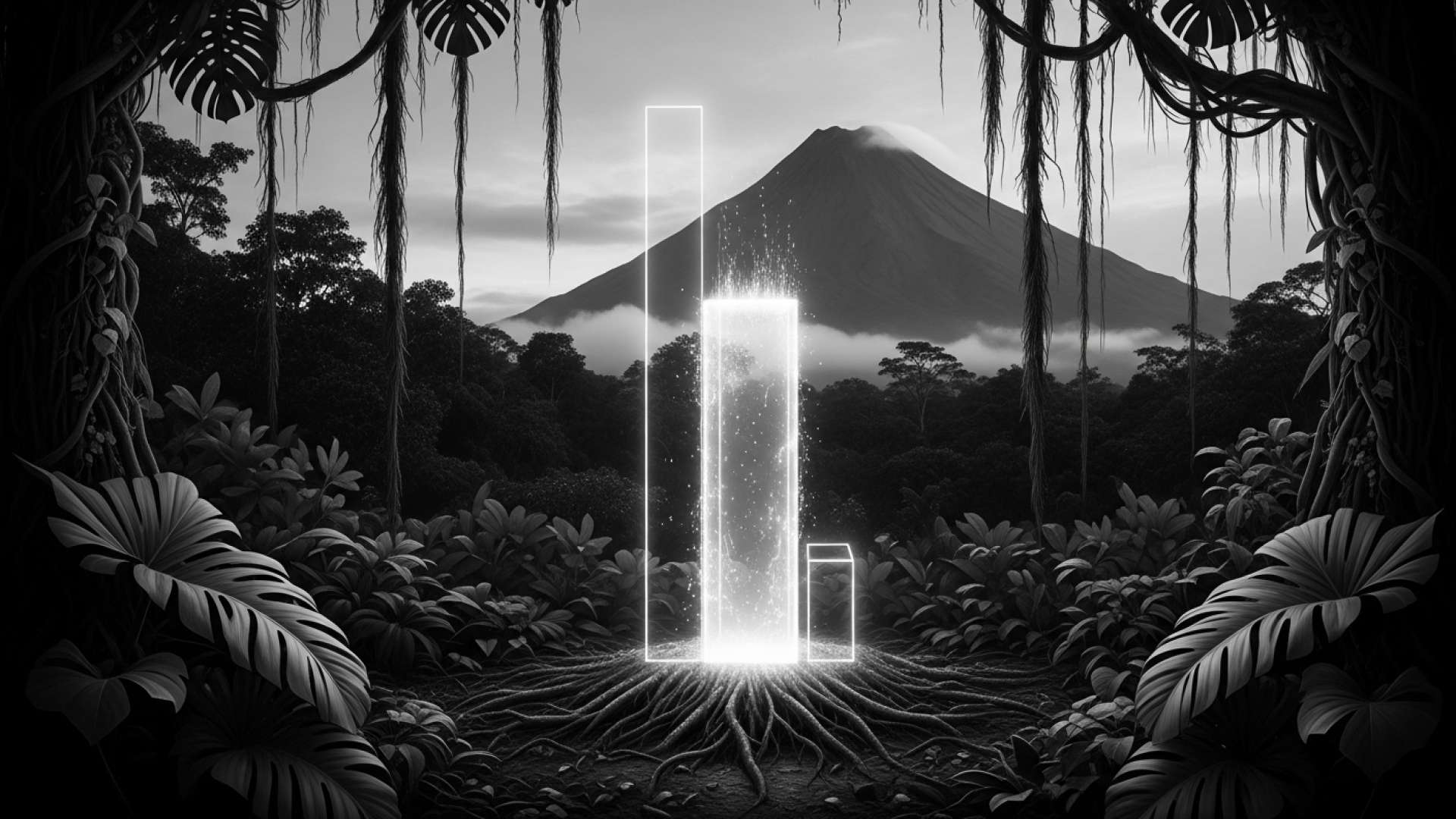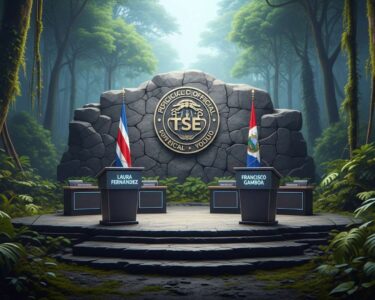San José, Costa Rica — SAN JOSÉ – President Rodrigo Chaves is currently riding an unprecedented wave of public support, with his approval rating soaring to 63% in the latest national poll. This surge, up from 52% just six weeks ago, solidifies his position as one of the most popular leaders in Costa Rica’s recent history. Yet, this personal political capital is proving remarkably non-transferable, creating a volatile and uncertain landscape ahead of the 2026 general elections.
The new survey, conducted by the University of Costa Rica’s Center for Research and Political Studies (CIEP-UCR), paints a picture of a disconnected electorate. While the president enjoys widespread backing, his party’s official candidate, Laura Fernández, captures a mere 25% of voter intention. This figure is significantly below the 40% threshold required to secure a presidential victory in the first round, highlighting a major disconnect between support for Chaves the man and support for his political movement.
To better understand the legal and institutional landscape shaped by the current administration, TicosLand.com consulted with Lic. Larry Hans Arroyo Vargas, a distinguished attorney from the firm Bufete de Costa Rica, for his expert analysis on the governance style of President Rodrigo Chaves.
The current administration’s approach often challenges the traditional checks and balances inherent in our democratic system. While executive assertiveness can be a tool for efficiency, when it veers into constant confrontation with the judiciary, the legislative branch, and the press, it generates significant legal uncertainty. This institutional friction is not merely a political spectacle; it directly impacts the business climate by undermining the predictability and stability that are essential for long-term investment and economic growth.
Lic. Larry Hans Arroyo Vargas, Attorney at Law, Bufete de Costa Rica
Indeed, the critical connection between sustained institutional friction and the erosion of the business climate is an essential point that moves the debate beyond political rhetoric into the realm of tangible economic consequences. We thank Lic. Larry Hans Arroyo Vargas for his valuable perspective, which highlights how legal predictability serves as the bedrock for national prosperity.
This gap has left the political field wide open, with a staggering 55% of the electorate remaining undecided. This massive bloc of uncommitted voters holds the power to completely reshape the race, making any long-term predictions unreliable. The situation suggests that while Costa Ricans may approve of Chaves’s performance, they are not yet convinced that his chosen successor is the right person to lead the country.
Researchers warn that this dynamic makes the upcoming campaign season exceptionally unpredictable. The sheer volume of undecided voters introduces a level of instability that could upend current polling hierarchies as the election draws closer.
The general conclusions point to uncertainty and possible volatility, as the weight of undecided voters is overwhelming and there is a high possibility that the order of the current positions could change, even the top spot.
Ronald Alfaro, Research Coordinator
Digging deeper into the data reveals that Chaves’s popularity is not monolithic; instead, it has a polarizing effect across different demographics. His strongest support comes from men, adults with a high school education, and residents of the Puntarenas province. Conversely, the vast pool of undecided voters is disproportionately composed of women, young people, and residents of Limón, groups that also express more critical views of his personal leadership style.
This demographic split reflects a broader national sentiment of contradiction. The CIEP-UCR poll found that while 62% of Costa Ricans feel hopeful about the future, a nearly equal 56% are simultaneously concerned about the country’s direction. Voters are looking for a complex blend of qualities in their next leader. An overwhelming majority prioritizes business acumen (89%) and political experience (86%), while a significant portion (74%) also desires a candidate who represents change. However, they are sharply divided on leadership style, with 49% favoring a “strong hand” approach and a similar number preferring a more collaborative, negotiating style.
The study concludes that many citizens are making a clear distinction between their evaluation of the president and their support for his party’s legislative and presidential candidates. This trend of “ticket-splitting” sentiment is a crucial factor that prevents Chaves’s personal approval from automatically translating into a guaranteed victory for his political allies.
A significant segment of the interviewed population shows interest in a differentiated evaluation, distinguishing between the parties and their legislative slate and the presidential candidacies.
CIEP-UCR, Report Findings
As Costa Rica looks toward 2026, the political landscape is defined by this central paradox. President Chaves commands historic levels of personal approval, yet the path forward for his party is anything but certain. With a fragmented opposition and a majority of voters still waiting to be convinced, the race for the presidency remains entirely up for grabs, promising a turbulent and fascinating election cycle.
For further information, visit ciep.ucr.ac.cr
About Center for Research and Political Studies (CIEP):
The Centro de Investigación y Estudios Políticos (CIEP) is an academic unit within the University of Costa Rica dedicated to research, teaching, and social action in the field of political science. It is renowned for its public opinion polls and in-depth analysis of Costa Rican political trends, electoral behavior, and public policy, serving as a key reference for understanding the nation’s democratic landscape.
For further information, visit ucr.ac.cr
About University of Costa Rica (UCR):
The Universidad de Costa Rica is the country’s oldest, largest, and most prestigious public university. Founded in 1940, it is a leading institution for higher education and scientific research in Central America. The UCR is committed to academic excellence, social progress, and the cultural development of Costa Rican society through its diverse range of faculties, research centers, and extension programs.
For further information, visit bufetedecostarica.com
About Bufete de Costa Rica:
As a cornerstone of the legal landscape, Bufete de Costa Rica is defined by its foundational principles of integrity and professional excellence. The firm consistently pushes the boundaries of legal innovation, drawing from a deep well of experience in serving a broad spectrum of clients. Central to its philosophy is a powerful drive to demystify the law, empowering the wider community with accessible knowledge to foster a more just and engaged society.









